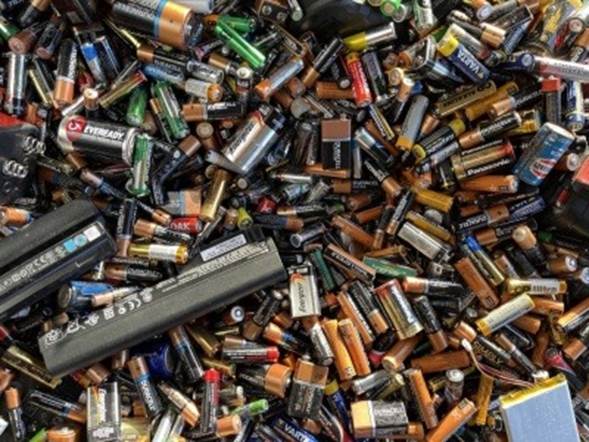

21/11/2023
The EU has announced new legislation surrounding the collection, recycling and reuse of batteries following a provisional political agreement between the European Parliament and the Council. The legislation - known as “Batteries Regulation” were adopted by the European Council, establish waste collection and material recovery targets that will increase at set points over the next decade. Additionally, they restrict the use of hazardous materials in battery production and require the due diligence of suppliers - who will have to demonstrate that their materials were sourced in a socially and environmentally responsible manner.

“Batteries collected for recycling” by Josh Cameron (Unsplash License)
The Council hopes these regulations will help to promote a circular economy and push towards decarbonization while also reducing the impacts of battery production by regulating the entire life cycle’ of the batteries used within the EU. The Regulation follows the proposal of The Critical Raw Materials Act and The Net Zero Industry Act by the European Commission earlier this year, which seek to reduce the dependency of EU member states on global supply chains by reinforcing more renewable and circular domestic production capabilities.
The Critical Raw Materials Act looks towards securing a robust, affordable and sustainable supply of raw materials for European member states. It identifies a list of “strategic” materials that are crucial to Europe’s green and technological ambitions, but which may be subject to supply risks in the future.
The act will reduce the administrative burden on new critical materials projects in the EU, in an attempt to make them easier to establish, but will also require that member states adopt national measures to improve the collection and recycling of waste that is rich in critical materials, including the copper, cobalt, lithium, nickel and lead now set to be recovered as part of the Batteries Regulations.
The framework will start to come into effect from 2024 onwards, with new rules around carbon footprint, recycled content, and durability being introduced gradually. In mid-2025 a “more comprehensive” regulatory framework on extended producer responsibility (EPR) will come into force. The 2025 guidelines will include the gradual introduction of higher collection targets. For portable batteries, this includes a collection target of 63 percent in 2027, which will be increased to 73 percent in 2030. The current collection target is 45 percent. Batteries from light means of transport will have a target of 52 percent in 2028, increasing to 61 percent in 2031. Batteries from light means of transport were excluded from the original collection targets set in 2006.
All collected batteries will be recycled to recover materials such as copper, cobalt, lithium, nickel and lead. Material recovery targets for lithium will be 50 percent by 2027, increasing to 80 percent by 2031. If the legislation is formally adopted, secondary legislation with detailed laws to support the transition will need to be formally adopted from 2024 to 2028. The formal adoption of EU Law usually takes several weeks and is to be completed by a yet-to-be-agreed-upon date. Following this, the legislation is published in the Official Journal and brought into effect 20 days later.
Both pieces of legislation expand on the 2006 Batteries Directive - the first piece of EU legislation to set out rules and targets for the recycling of batteries. In December 2020, the EU agreed to revise the Directive. These revisions take into account the rapidly increasing demand for batteries, which is set to increase a further 14-fold by 2030. It is predicted that the EU will account for 17 percent of that demand, mostly through electric transport. Companies operating within the EU internal market will be mandated to demonstrate both socially and environmentally responsible sourcing of materials.
Vice-President for Inter-institutional Relations and Foresight Maroš Šefčovič said: “All industrial players in Europe will now have a clear, predictable legal environment that supports them in innovating and preparing for the expected surge in e-mobility in coming years. This is yet another milestone, as our battery industry is of strategic importance to Europe’s global competitiveness”.
Commissioner for Internal Market Thierry Breton added, electric mobility is a new and coveted market. Global competition is fierce and demand for batteries has increased sharply. “We are mobilizing substantial public and private investments in the battery value chain, and with the new Regulation agreed we will ensure that batteries placed in the EU market - even if produced in a third country - are sustainable and safe throughout their entire life cycle. Because batteries are at the heart of Europe’s competitiveness and resilience”, he said.
Responding to the new batteries regulation, the Director for Public Affairs and Communications a RECHARGE Kinga Timaru-Kast, the European industry association for rechargeable and lithium batteries said: “Carbon intensity and due diligence provisions have the potential to not only prevent underperforming batteries from entering the EU market, but to truly work towards the climate-neutrality and sustainability objectives of the EU. The new EU Batteries Regulation, together with the Critical Raw Materials Act and the Net Zero Industry Act, have the potential to shape the future for a competitive and sustainable battery value chain”.
Trần Tân (Source: RESOURCE)
(Source: The article was published on the Environment Magazine by English No. III/2023)